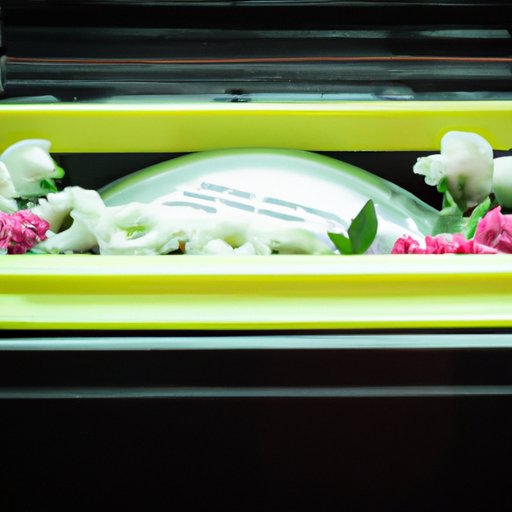Introduction
The concept of donating one’s body to science is often viewed as an altruistic act of generosity. Known formally as anatomical donation, this type of donation involves providing a deceased person’s body to medical institutions for research or educational purposes. Donating a body to science can offer a meaningful way to contribute to medical advancements while also helping to reduce the financial burden of funeral costs on loved ones.
Definition of Body Donation to Science
Anatomical donation is the donation of a body after death for scientific research or educational use. Anatomical donations are typically made to universities, medical schools and hospitals for the purpose of advancing medical knowledge. These donations help to further the study of anatomy and physiology, and can lead to breakthroughs in the understanding, diagnosis and treatment of diseases.
Overview of the Benefits of Donating a Body to Science
Donating a body to science offers a number of unique benefits. For starters, it relieves families of the expense and responsibility of arranging traditional funerary services. Additionally, it provides an opportunity for individuals to give back to their communities by contributing to medical research and education. Finally, it can be seen as a final act of generosity that will have a lasting impact on future generations.
Exploring the Process of Body Donation to Science
The process of donating a body to science involves several steps. First, the individual must register with a university or other medical institution that accepts anatomical donations. Most institutions have online forms that can be filled out in advance. It’s important to note that donors must be of legal age (18 or older) and must have already made arrangements for the disposal of any organs that they wish to donate.
Once registration is complete, the individual’s family must notify the institution of the donor’s death. If the body is accepted, the institution will arrange for transportation of the body and any relevant paperwork. The body will then be prepared for research or educational use. Depending on the institution, the donated body may be used for dissection, autopsy, or other types of medical research.

Regulations Surrounding Body Donation to Science
Due to ethical and legal considerations, there are certain regulations surrounding body donation to science. In the U.S., all anatomical donations must be voluntary and without compensation. Additionally, donors must be at least 18 years of age and must make arrangements for the disposal of any organs that they wish to donate. It is also important to note that most institutions do not accept bodies that have been autopsied or embalmed.

Examining the Benefits of Body Donation to Science
Body donation to science offers a number of unique benefits. For starters, it can help to further medical research and education. By donating their bodies, individuals can help to advance medical knowledge in ways that would otherwise be impossible. This can lead to improved treatments and diagnoses of various medical conditions.
In addition, body donations can help to reduce the financial burden of funeral costs on families. Funerary services can be expensive, and many families are unable to afford them. By donating a body to science, individuals can provide their families with relief from these costs.

Roles of Body Donors in Advancing Medical Knowledge
Body donors play an integral role in advancing medical knowledge. Their donations provide researchers with invaluable opportunities to study anatomy, pathology, and various medical conditions. Additionally, body donations can be used for teaching purposes, allowing students to gain hands-on experience in the field of medicine.

Investigating the Aftermath of Body Donation to Science
After a body has been donated to science, the institution typically arranges for either burial or cremation of the remains. Depending on the institution, families may be able to arrange for a memorial service if desired. Additionally, some institutions offer memorialization options for family and friends, such as plaques or trees planted in honor of the donor.
Conclusion
Donating a body to science can provide a meaningful way for individuals to contribute to medical research. Not only does it relieve families of the financial burden of funeral costs, but it also gives donors the opportunity to leave a lasting legacy of medical advancement. Whether you choose to donate your body or not, it is important to make an informed decision based on your own personal beliefs.
In summary, body donation to science offers a number of unique benefits. It provides an opportunity for individuals to give back to their communities by contributing to medical research and education. Furthermore, it can help to reduce the financial burden of funeral costs on loved ones. For those considering body donation, it is important to understand the process and potential implications of such a decision.
(Note: Is this article not meeting your expectations? Do you have knowledge or insights to share? Unlock new opportunities and expand your reach by joining our authors team. Click Registration to join us and share your expertise with our readers.)
